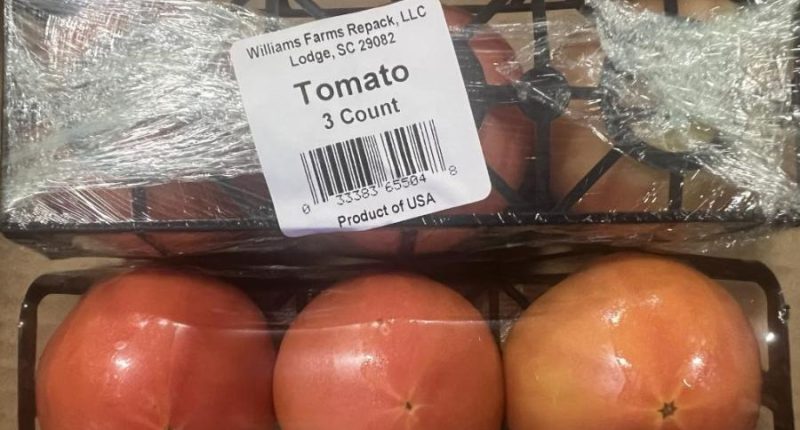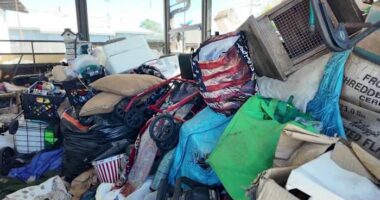Share this @internewscast.com
A tomato recall that was initiated in early May in TENNESSEE has now been escalated to a Class I level by the Food and Drug Administration (FDA), which is the most severe classification given by the agency.
It’s now one of two ongoing U.S. tomato recalls categorized as Class I. Together, the recalls affect 14 states.
On May 2, Williams Farms Repack, LLC, issued a voluntary recall for almost a dozen batches of tomatoes due to fears of salmonella contamination. These tomatoes were packaged and distributed to wholesalers and distributors in Georgia, North Carolina, and South Carolina from April 23 to April 28.
Consumers were urged not to consume the tomatoes, but rather them to the place of purchase for a refund or get rid of the product.



At the end of May, however, the FDA’s enforcement report was updated to categorize the recall as Class I, the most serious classification.
A Class I recall indicates a situation where there is a significant chance that using or being exposed to a non-compliant product could lead to serious health consequences or even death.
The Centers for Disease Control and Prevention (CDC) estimates that salmonella infections sicken around 1.35 million people in the U.S. annually. Children, older adults and those with weakened immune systems have an increased chance of infection or getting seriously ill.
Common symptoms include watery diarrhea — sometimes with the presence of blood or mucus, stomach cramps, headache, nausea, vomiting, fever and loss of appetite. These symptoms can begin to show between six hours and six days after swallowing the bacteria. Anyone with prolonged or severe symptoms is urged to contact a healthcare provider.

A separate tomato recall, initiated in early May by Ray & Mascari Inc. over possible salmonella contamination, had also been upgraded to Class I by May 13.
That recall affected about 510 cases of tomatoes distributed to 11 states: Illinois, Indiana, Kentucky, Michigan, Missouri, Mississippi, New York, Ohio, Pennsylvania, Tennessee and Wisconsin.
Both recalls are currently active and have not been terminated, according to the FDA website.












